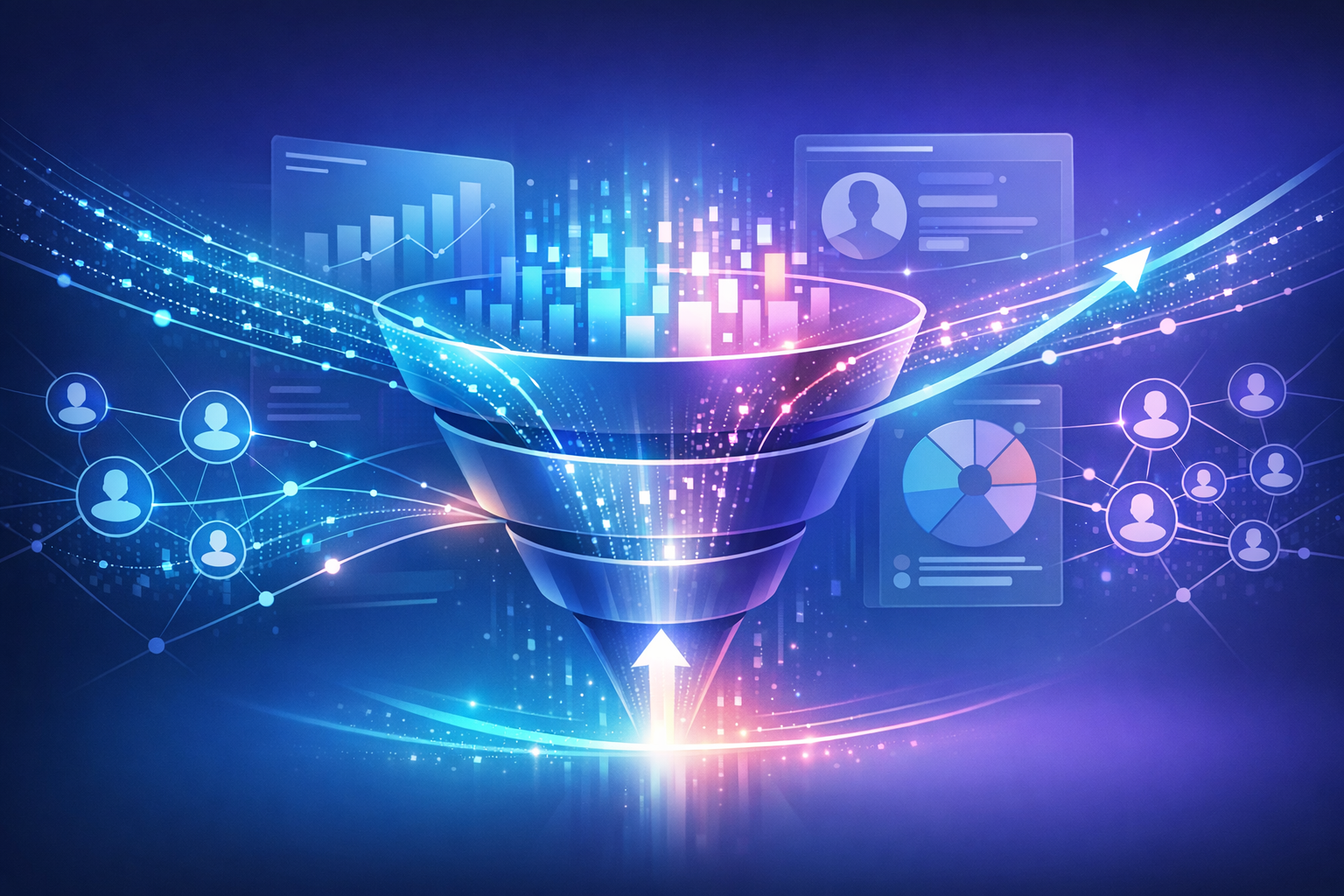Editor’s note: The value of CRM solutions advanced the efficiency and profits of SMBs and mid-size organizations as well. Thus, many vendors failing due to the incomplete technology and processes alignment, and poor business strategy planning

Today we present you the interview with John M. Perez, a customer experience expert, CRM strategist and founder of Customer Service in the Cloud and Service-Push, LLC.
In this interview with John M. Perez, we are going to discuss the major benefits of CRM for small companies, strategy developing and figure out several tips on enabling outstanding customer experience.
1. What does attract you in CRM consulting and strategy development?
I’m excited about the transformation that is taking place in our industry as traditional CRM systems become more customer journey focused, more social, and more mobile. Additionally, we are now in the process of consolidating traditional CRM capability with external customer facing capability like Live Chat on your website or a customer knowledge base. Companies are now realizing that 1 platform to service and sell to their customers is a competitive advantage. There is still a lot of work to do in these areas, and the opportunity for product development, and consulting is for the taking!
2. John, in your opinion, which type of CRM may suit only for SMBs? Why?
I think cloud-based CRM systems with a strong focus on Customer Experience with an intuitive easy-to-use interface will be the #1 choice for Small Business customers on their journey to getting started with a CRM suite. However, there are certain industries, and complex business processes in a business that do not always lend itself to a cloud solution. In highly regulated industries like the Pharmaceutical and Financial Industries, an on-premise solution meets most of its security requirements. Particularly, in the Enterprise space. However, in small business there will be a few who choose on-premise due to their business processes and regulatory requirements being more complex than the average. I have seen companies outgrow cloud-based capabilities when companies over customize their cloud-based CRM apps and the costs start to get significantly high.

3. How can we reduce the duplicates and incomplete records with CRM? Are there any practical hints?
It’s easy to throw technology at CRM data to prevent dupes and merge customer information. However, that is often not the best way to maintain data integrity and a 360 view of your customer. Organizations must think about the business processes in which they acquire customer information, and ensure the process and technology are aligned with a company’s strategic objectives. For example, if one business objective is to acquire more online leads, then perhaps your business process would be to engage those leads through a multi channel engagement strategy over the web, social media, chat, and online communities. In order to get a true 360 view of the effectiveness of your lead generation, the business must choose 1 platform with all these capabilities, or integrate each of these channels into your CRM platform. Otherwise, you end up with silos of customer data, duplicate customer data, and an inefficient view of your lead generation and pipeline. CRM dedupe tools are great, but they often exist because business objectives and business processes are not aligned with the technology the organization adopts.
4. Can these CRM provide your customers with a better buying experience and faster service?
There are 2 approaches to making businesses buying and service experience a more robust, and profitable one with SaaS technology.
Option 1 would be to adopt 1 SaaS platform that addresses over 50 to 80% of your customer lifecycle from researching, buying, selling, retaining, servicing, and doing cross-sell and upsell. Having a SaaS CRM platform with all the necessary capabilities to manage the entire lifecycle in one unified technology platform will save your company money over time, while making the customer experience a far more seamless one. Making it easier for your customer to buy and be serviced by your company. About 5% of the small businesses I interact with are here. There are not a lot in the small business space.
Option 2 would be the Integration of Best in Breed SaaS products to manage the customer life cycle. In this case, you have invested in different technologies that do certain things best. For example, SugarCRM for Sales Prospecting and capturing your customer data, but you are powering your customer facing Customer Service with another tool like GetSatisfaction. Another tool for Email Marketing like MailChimp, WordPress as your website, and another tool like Magento for eCommerce.
While it sounds like a patched up way to run your business, if it is integrated with your core CRM platform then you can manage the process extremely well. The best in breed SaaS solutions enable you to integrate these tools seamlessly. Often companies utilize this approach because they are implementing different strategies at different times in their performances and they want to deploy quick solutions that are highly specialized. This about where 95% of small businesses are today.
There is no one best option for any company. While option 1 may sound the most logical, it is often not the best suited for small business primarily because of the expense and resource limitations of a small business. Option 2 works well when your cloud apps are integrated, and in some cases, you will need SSO to be fully efficient in managing the experiences for your customers.

5. Can this option advance the customer service strategy? How?
Customer Segmentation is absolutely an essential strategy in Service. This is often used in Sales and Marketing, but Service benefits once company’s clearly define their segmentation strategy. For example, differentiating service based on Customer purchases or loyalty is a great way to thank customers for their business while also encouraging them to do business with you. Providing a Dedicated Phone number or accelerated service levels would be an ideal way to better service your customers based on their segmentation level.
In other organizations, I am seeing customers capture Customer Survey data and integrating that data right into the CRM profile of the customer so that Email, Phone, and Chat agents assess the experience they had in their last interaction. For companies that have different customer types, it is imperative that they not only segment and identify these customers, but they should align both service, marketing, and sales processes with the unique needs of these customer segments.
6. What are the common problems of planning CRM Initiative? Can you give few tips how to avoid them?
Mistake #1: One of the common mistakes companies make is that they don’t clearly define what they want to use CRM for beyond contact management. Many organizations are not aware of the potential, and so they don’t invest the time or money to invest further in their CRM Roadmap. CRM technology is a journey, not a one-time turnkey solution to achieving profits.
Solution: Take the time do some consulting on both your CRM Selection and mapping your business processes to how you will satisfy them in a CRM platform. Avoid the itch to hire a developer immediately and customize your CRM platform. 3 to 4 weeks of consulting can help you save months of development costs and frustration. Take the time to hire a person who knows CRM with demonstrated business experience in it.
Mistake #2 – Over customizing a CRM platform.
Companies want to deploy a ton of new functionality into CRM platforms, but do not take the time to understand the benefit of making the enhancements.
Solution: Create a Roadmap of CRM Enhancements & Prioritize by applying the business value. Take the time to document what it is you want. Document the ROI of each of the enhancement. Quantify it with how much more revenue you can achieve or how much more time you can save. Agree across the organization on what is important before you dive in and develop.
Mistake #3 – Expecting Immediate ROI. CRM is an upfront investment in technology, adoption, and alignment of business processes. Most companies will not see an ROI on their investment till at least the 3rd or 4th month where both internal efficiency, adoption, and sales processes begin to benefit from the technology. Implementing CRM in of itself does not improve your sales. However, utilizing the technology found within it like Workflow, Campaign Management, Reporting, and Lead Management over time will result in an increase in sales.
Solution: Create a culture of CRM within the organization and Establish Key Performance indicators to measure the success of your CRM program. If they are sales driven KPIs like increasing conversion rate, make sure you have both a process and a report in CRM to track your conversion. If it is achieving more efficiency like improving customer churn, make sure you utilize CRM for effective outreach programs.
Many thanks to John for such detailed and clear-cut answers. We are sure that our readers will find them useful and practical.
You can also check other our interview articles.




